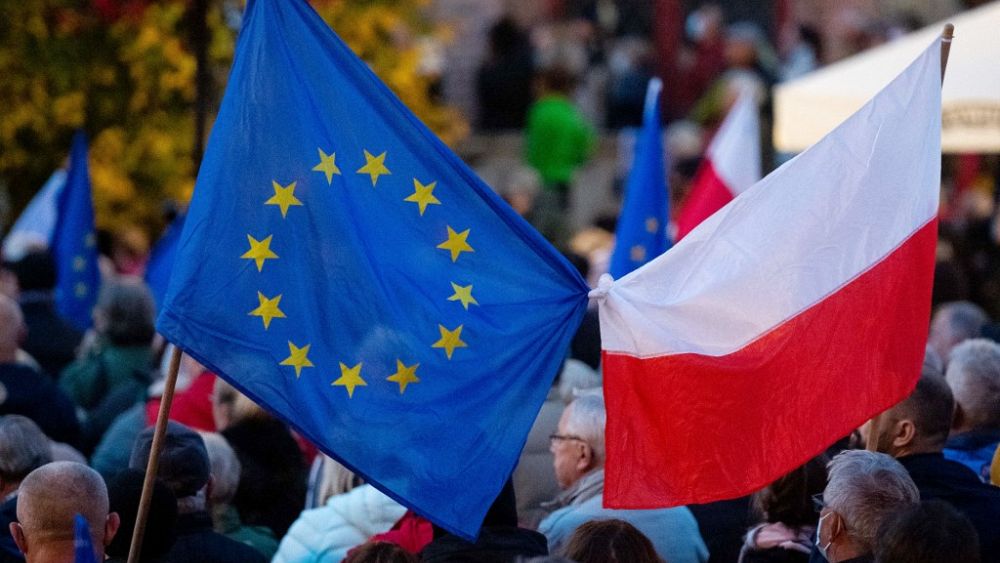
This week in Europe, the EU’s Court of Justice escalated the ongoing legal row with Poland by fining the country €1 million a day for ignoring a ruling that it must suspend its controversial changes to its judicial system.
Should Poland refuse to pay the fines, they will continue to stack up.
The move by the judges in Luxembourg was immediately denounced in Warsaw as blackmail.
“The CJEU made a decision without a legal basis. These are institutions that operate beyond their legal power. There has to be a final verdict to impose a penalty on a member state. There is no verdict, this is a precautionary procedure,” said Michal Wojcik, advisor to prime minister Mateusz Morawiecki.
In contrast, the Polish opposition sharply criticised the right-wing government for what they say is undermining democracy.
“For six years, PiS has been destroying Polish democracy by breaking both the Constitution and the EU treaties. We have been warning for years that this is how it ends,” said opposition spokeswoman Kamila Gasiuk-Pihowicz.
The European Court of Justice believes that the Polish judicial reform would seriously compromise the independence of judges.
Therefore, legal action against Poland is necessary, the judges say, to protect the legal order of the European Union and the very values on which that union is founded – the rule of law.
And that’s why there cannot be any compromise, according to Belgian prime minister Alexander De Croo.
“This is about the overwhelming majority of member states – from the Baltics to Portugal – who agree our Union is a union of values, not a cash machine. You cannot pocket all the money but refuse the values,” he said.
It is unclear how there could be a satisfying solution to the crisis and with almost 90 per cent of Poles viewing the EU favourably, the Polish government is hesitating to pursue a Brexit-like strategy.
Inflation kicks in
The latest data from Eurostat released on Friday showed inflation in the eurozone at 4.1 per cent – the highest figure since the Great Recession and almost double the 2.2 per cent annual estimation of the European Central Bank (ECB).
Inflation – the rate at which prices for goods and services change over time – was already high in September (3.4 per cent), but a persistent energy crunch has sent electricity bills soaring, driving up all kinds of products and services along the way.
In October, inflation for energy reached a stunning 23.5 per cent (up from 17.6 per cent in September). The European Commission expects energy costs to remain high until March or April, when temperatures increase and electricity consumption from heating decreases.
The latest inflation reading adds pressure on the European Central Bank and its president Christine Lagarde. The ECB is meant to maintain price stability and make sure that inflation remains low, stable, and predictable.
“Rising energy prices, the recovery in demand and supply bottlenecks are currently pushing up inflation. While inflation will take longer to decline than previously expected, we expect these factors to ease in the course of next year,” Lagarde said on Thursday, in anticipation of the October data.
“We continue to foresee inflation in the medium term remaining below our two per cent targets.”